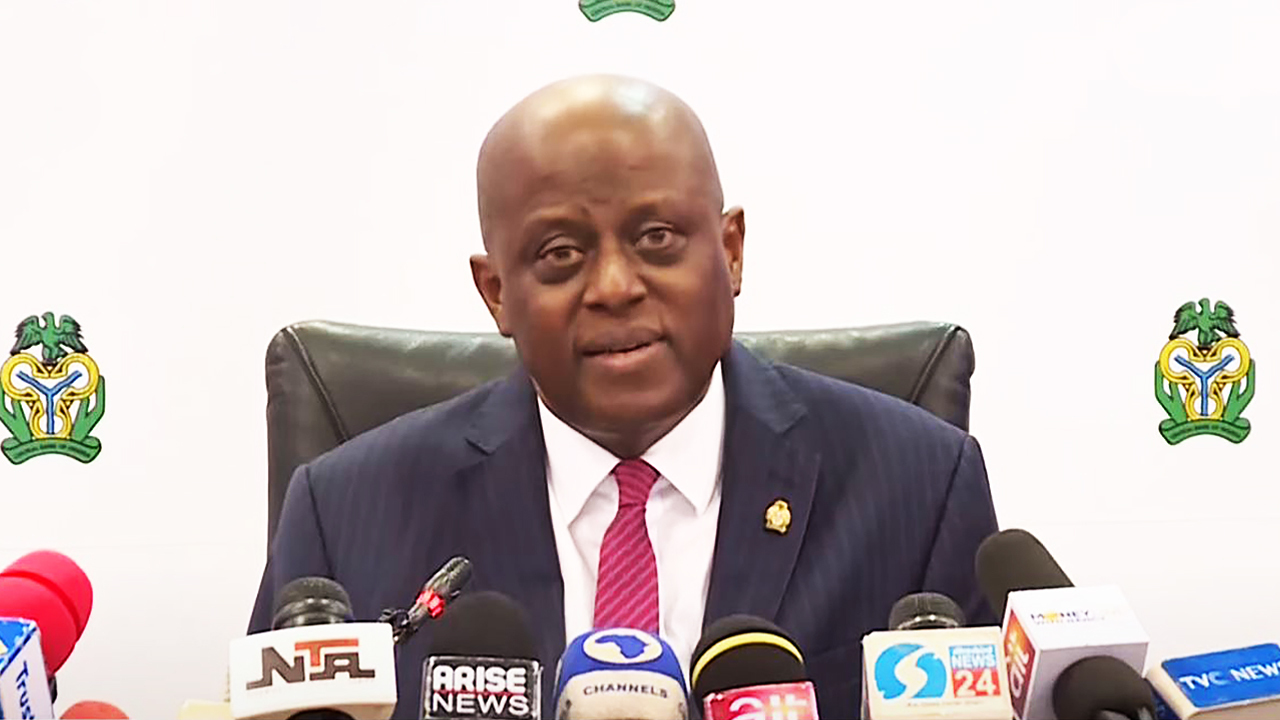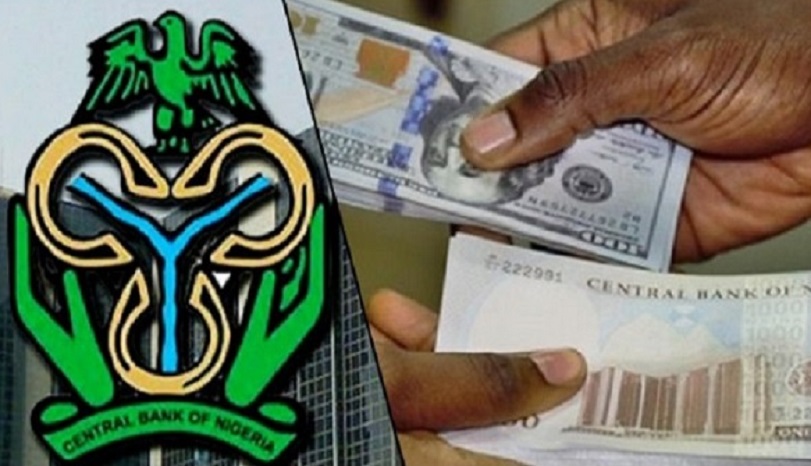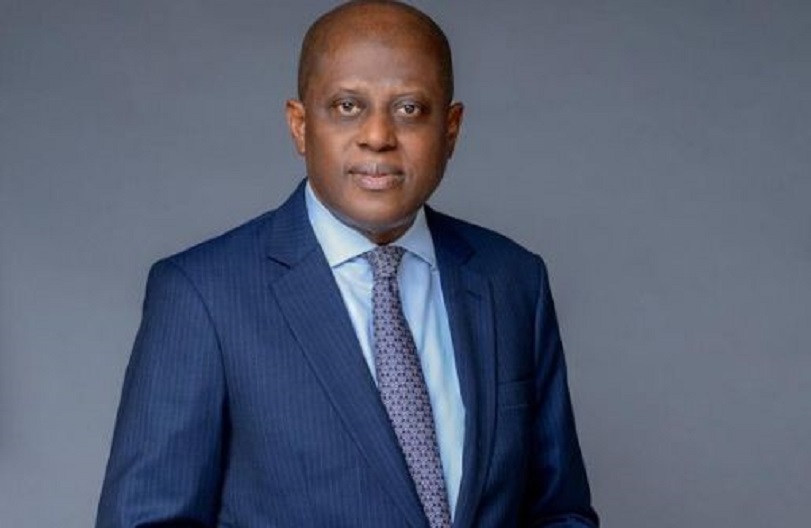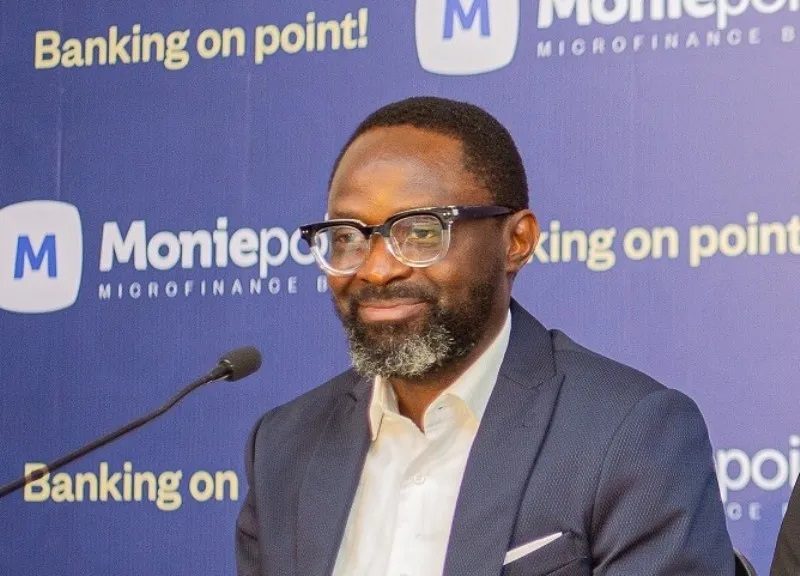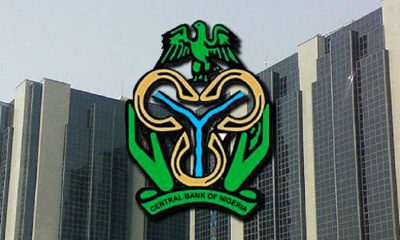Economy
Another Economic Crisis Looms over CBN “Reckless Funding of FG”

By Premium Times
Just when Nigerians are celebrating the exit of the economy from recession, a report has warned that another trouble is lurking around the corner.
According to Premium Times, a massive and clearly illegal multi-source funding of the federal government by the CBN could drag the Nigerian economy to its knees, experts familiar with domestic monetary conditions and current happenings at the CBN have warned.
The central bank had, in the last one year, pumped trillions of naira into illegally financing the federal government under different guises: from mass purchase of treasury bills to humongous direct financing of the government through the “window account”.
Insiders say the apex bank is “creating money” to “finance a government that is broke and which does not have economic vision,” in what one of them called a “desperate move by the central bank governor, Godwin Emefiele, to remain in office”.
A former governor of the CBN and a former deputy governor of the bank who spoke with PREMIUM TIMES were both alarmed by the long-term implications of such “direct and reckless financing of government” on inflation and other economic indices, including crowding-out the private sector from the domestic credit creation process.
The Alarming Transactions
The warning whistle was first blown at the last meeting of the CBN’s Monetary Policy Committee, held between July 24 and 25.
In the communiqué of the meeting published on Tuesday, members of the policy advisory committee expressed “concern over the increasing fiscal deficit estimated at N2.51 trillion in the first half of 2017 and the crowding out effect of high government borrowing.”
Some members of the committee, in their respective submissions captured in the 50-page report of the meeting, expressed reservations over the apex bank’s handling of key monetary and fiscal issues that may plunge the economy into a ditch.
However, it was an external member of the committee, Adedoyin Salami, who directly painted a gloomy picture of the extent of the government’s financing by the apex bank and other irregularities.
Mr Salami, an economist and faculty member with the Lagos Business School, literary took the CBN to the cleaners in his assessment of its monetary policy which, he warned, was pushing the country towards a serious economic crisis.
He criticised CBN’s “massive injections of cash” to the government, accusing the bank of serving as a “piggy bank” for the government, against its own rules.
“Monetary data shows a sharp rise in the extent of CBN financing of the government deficit,” he said.
From December 2016, according to the economist, the CBN had variously made cash available to the federal government running into trillions, mostly beyond legal thresholds.
He said the CBN’s claims on the federal government under the period amounts to N814bn, which is “twentyfold higher” than what the law permits.
Ironically, the claim of commercial banks, he said, “rose marginally by 0.4% to N4.6 trillion”.
Another route through which the CBN pumped money to the government, Mr Salami said, was via the bank’s N454 billion spending on purchase of government’s treasury bills, which he said, had risen by 30 percent.
The government’s overdrafts from the apex bank also rose to N2.8 trillion within the period, representing a five percent increase.
But the sharpest rise in the figures, according to Mr Salami, was in the government’s “mirror account” liabilities, which rose “from N3 billion at the end of 2016 to N1.5 trillion in April 2017”.
Authorities at the CBN are yet to contradict Mr Salami’s claims.
Illegalities
A look at the CBN Act 2007 show that the huge direct financing of the federal government is in direct contravention of clear provisions of the Act.
Although Section 38 (1) of the Act empowers the bank to grant “temporary advances to the Federal Government in respect of temporary deficiency of budget revenue” subsection 2 of the same section stipulates, “the amount of such advances outstanding shall not at any time exceed five per cent of the previous year’s actual revenue of the Federal Government”.
Additionally, subsection three of the section provides that such advances should be paid “as soon as possible and shall in any event be repayable by the end of the Federal Government financial year in which they are granted and if such advances remain unpaid at the end of the year, the power of the Bank to grant such further advances in any subsequent years shall not be exercisable, unless the outstanding advances have been repaid”.
By the estimated N6 trillion earned by the government last year, the CBN should have only granted advances to the federal government not exceeding N300 billion, representing five percent of the earnings.
Contracting Private Sector
The conduct of the government and the CBN, according to the economist, may, by limiting the organised private sector’s access to credit, have contributed to the dire straits in which the sector currently finds itself.
“We thus find ourselves at a point where government borrowing from the CBN is neutralised by raising the CRR of banks, thereby limiting private-sector access to credit,” he said.
“In other words, the private sector is deliberately “crowded-out”. It is ironic that the government, in need of tax revenues – having in the 1st half of the year accumulated its full-year deficit – is constraining the private sector from which the sorely needed revenues are to be derived.”
Sounding perplexed and perhaps frustrated, Mr Salami said, “Whilst I still wonder what the underlying economics is – I sincerely hopes it works!”
Desperate Measures
To cushion the impact of these mass and illegal financing of the federal government, experts say, the CBN has been scrambling to evolve policies that would counter the destructive effects of its actions.
Some of these measures, PREMIUM TIMES understands, include the regular pumping of forex into the foreign exchange market to cater for high demand due to the attendant rise in naira liquidity.
The apex bank, Mr Salami said, also carries out “special auctions” to help normalise banks’ Cash Reserve Ratios (CRR).
“To prevent the effect of continuous and massive injections of cash to fund the Federal Government showing up in sharply higher inflation and currency weakness, the Central Bank now applies “special auctions” Mr Salami said.
Apart from raising the CRR beyond the 22.5 percent approved rate, Mr Salami said, “the format of these “auctions” recall the dark days of “stabilisation securities”.
Mr Salami also flayed the bank’s “seeming haste to declare “victory” for “fragile” improvements in forex and inflationary statistics, saying the country is far from being out of the woods in some of those areas.
He lamented that “the most challenging of the present characteristics of the economy in Nigeria is the adoption of a quantitative easing stance by the management of the Central Bank”.
Another member of the MPC, Abdul-Ganiyu Garba, also faulted CBN’s monetary policies, accusing it of causing “contradiction or inconsistency problem”.
“The coexistence of high interest rate and growth in money supply are unnatural. Indeed, it generates a contradiction or inconsistency problem. Strong growth in money supply in all countries that adopted quantitative easing pushed down interest rates almost to zero,” he said.
Mr Garba, a professor, also indicted the bank for the significant distortions in “the forex market, the money market, the stock market and domestic prices” due to “strong growth in money supply in 2015 and 2016”.
A former deputy governor of the CBN and well-regarded economist who spoke to PREMIUM TIMES on condition of anonymity described the actions of the apex bank as “reckless” and beyond the parameters set by law.
He accused Mr Emefiele of “hauling cash” to the government in contravention of the set rules and statues of the apex bank.
“CBN governor is a banker and adviser to the government,” he said. “The bank is a monetary authority, not financial authority. Their role does not mean reckless lending to government,” he said.
According to him, the government and the CBN “are setting the economy for a big fall”.
He said both the government and the bank “need to take policy adjustment measures” if they want to change the position of things, otherwise “they will continue to create money which will lead to serious inflation”.
More Troubles
Apart from the huge advances it is illegally taking from the CBN, the federal government has also been ramping up a raft of local and foreign loans.
Another MPC member, Suleiman Barau, also sounded a note of warning on the implication of the payment of N760 billion as Paris Club refunds to states.
Mr Barau, a deputy governor of the CBN, added that the possibility of payment of more money to states in the name of the refunds could further complicate economic recovery.
“The whole idea underlying the deployment of the fund is not completely bad as it could stimulate growth in output in the long run.
“The reality, however, is that the impact of this type of injection on aggregate demand tends to precede the influence on aggregate supply and invariably stoke inflation in the short run. Besides, there is evidence of growing liquidity surfeit in the banking industry in the face of sluggish growth in credit particularly to the private sector.
“It is not unlikely that the current injection may complicate the liquidity surge with potential adverse impact to the foreign exchange markets,” he explained.
CBN Responds
This reporter’s efforts to reach CBN’s acting director of corporate communication, Isaac Okoroafor, for comments, on Sunday, were unsuccessful.
He also did not answer or return calls Monday morning. He however sent a text message requesting an SMS enquiry.
But as at the time of publishing this story, at 10 am on Monday, Mr Okoroafor was yet to respond to the text message enquiry sent to him.
He however responded about an hour later, asking rhetorically; “is it illegal for CBN to fund government activities?”
Reminded that such funding were far off the legal boundaries, he responded: “I can’t respond to rumours or speculation. All I want to say is that there’s no illegality in the advances CBN has made to the Federal Government.”
Optimistic Emefiele
However, in his personal statement contained in the MPC meeting report, the CBN governor, who is also chairman of the committee expressed cautious optimism on the economy.
He also acknowledged the effect of the government’s undue mopping of money from the system, although in a subtle and passing manner.
Mr Emefiele noted: “The growth in government credits due to expanded fiscal operations evokes the crowding-out of productive private sector in the short-run.
He however expressed optimism that “if the government succeeds in reducing the infrastructure deficit through its fiscal operation, I expect a favourable crowding-in of the private sector in the medium- to long-term.”
The CBN governor also blamed inflation and foreign exchange crisis on other factors other than he and the CBN’s roles.
“As I had noted earlier, the underlying deterrents include: foreign exchange scarcity (due to low crude oil receipts and inadequately diversified economy); constrained fiscal space; infrastructural bottlenecks; high energy prices; and depressed domestic demand (partly attributable to sizeable salary arrears owed to some civil servants),” he said.
Economy
Adedeji Urges Nigeria to Add More Products to Export Basket

By Adedapo Adesanya
The chairman of the Nigeria Revenue Service (NRS), Mr Zacch Adedeji, has urged the country to broaden its export basket beyond raw materials by embracing ideas, innovation and the production of more value-added and complex products
Mr Adedeji said this during the maiden distinguished personality lecture of the Faculty of Administration, Obafemi Awolowo University (OAU), Ile-Ife, Osun State, on Thursday.
The NRS chairman, in the lecture entitled From Potential to Prosperity: Export-led Economy, revealed that Nigeria experienced stagnation in its export drive over three decades, from 1998 to 2023, and added only six new products to its export basket during that period.
He stressed the need to rethink growth through the lens of complexity by not just producing more of the same stuff, lamenting that Nigeria possesses a high-tech oil sector and a low-productivity informal sector, as well as lacking “the vibrant, labour-absorbing industrial base that serves as a bridge to higher complexity,” he said in a statement by his special adviser on Media, Dare Adekanmbi.
Mr Adedeji urged Nigeria to learn from the world by comparative studies of success and failure, such as Vietnam, Bangladesh, Indonesia, South Africa, and Brazil.
“We are not just looking at numbers in a vacuum; we are looking at the strategic choices made by nations like Vietnam, Indonesia, Bangladesh, Brazil, and South Africa over the same twenty-five-year period. While there are many ways to underperform, the path to success is remarkably consistent: it is defined by a clear strategy to build economic complexity.
“When we put these stories together, the divergence is clear. Vietnam used global trade to build a resilient, complex economy, while the others remained dependent on natural resources or a single low-tech niche.
“There are three big lessons here for us in Nigeria as we think about our roadmap. First, avoiding the resource curse is necessary, but it is not enough. You need a proactive strategy to build productive capabilities,” he stated, adding that for Nigeria, which is at an even earlier stage of development and even less diversified than these nations, the warning is stark.
“Relying solely on our natural endowments isn’t just a path to stagnation; it’s a path to regression. The global economy increasingly rewards knowledge and complexity, not just what you can dig out of the ground. If we want to move from potential to prosperity, we must stop being just a source of raw materials and start being a source of ideas, innovation, and complex products,” the taxman stated.
He added that President Bola Tinubu has already begun the difficult work of rebuilding the economy, building collective knowledge to innovate, produce, and build a resilient economy.
Economy
Nigeria Inaugurates Strategy to Tap into $7.7trn Global Halal Market

By Adedapo Adesanya
President Bola Tinubu on Thursday inaugurated Nigeria’s National Halal Economy Strategy to tap into the $7.7 trillion global halal market and diversify its economy.
President Tinubu, while inaugurating the strategy, called for disciplined, inclusive, and measurable action for the strategy to deliver jobs and shared prosperity across the country.
Represented by Vice-President Kashim Shettima, he described the unveiling of the strategy as a signal of Nigeria’s readiness to join the world in grabbing a huge chunk of the global halal economy already embraced by leading nations.
“As well as to clearly define the nation’s direction within the market, is expected to add an estimated $1.5 billion to the nation’s Gross Domestic Product (GDP) by 2027. It is with this sense of responsibility that I formally unveil the Nigeria National Halal Economy Strategy.
“This document is a declaration of our promise to meet global standards with Nigerian capacity and to convert opportunity into lasting economic value. What follows must be action that is disciplined, inclusive, and measurable, so that this Strategy delivers jobs, exports, and shared prosperity across our nation.
“It is going to be chaired by the supremely competent Minister of Industry, Trade and Investment.”
The president explained that the halal-compliant food exports, developing pharmaceutical and cosmetic value chains would position Nigeria as a halal-friendly tourism destination, and mobilising ethical finance at scale,” by 2030.
“The cumulative efforts “are projected to unlock over twelve billion dollars in economic value.
“While strengthening food security, deepening industrial capacity, and creating opportunities for small-and-medium-sized enterprises across our states,” he added.
Allaying concerns by those linking the halal with religious affiliation, President Tinubu pointed out that the global halal economy had since outgrown parochial interpretations.
“It is no longer defined solely by faith, but by trust, through systems that emphasise quality, traceability, safety, and ethical production. These principles resonate far beyond any single community.
“They speak to consumers, investors, and trading partners who increasingly demand certainty in how goods are produced, financed, and delivered. It is within this broader understanding that Nigeria now positions itself.”
Tinubu said many advanced Western economies had since “recognised the commercial and ethical appeal of the halal economy and have integrated it into their export and quality-assurance systems.”
President Tinubu listed developed countries, including the United Kingdom, France, Germany, the Netherlands, the United States, Canada, Australia, and New Zealand.
“They are currently among the “leading producers, certifiers, and exporters of halal food, pharmaceuticals, cosmetics, and financial products.”
He stated that what these developed nations had experienced is a confirmation of a simple truth, that “the halal economy is a global market framework rooted in standards, safety, and consumer trust, not geography or belief.”
The president explained that the Nigeria national halal economy strategy is the result of careful study and sober reflection.
He added that it was inspired by the commitment of his administration of “to diversify exports, attract foreign direct investment, and create sustainable jobs across the federation.
“It is also the product of deliberate partnership, developed with the Halal Products Development Company, a subsidiary of the Saudi Public Investment Fund.
“And Dar Al Halal Group Nigeria, with technical backing from institutions such as the Islamic Development Bank and the Arab Bank for Economic Development in Africa.”
The Minister of Industry, Trade and Investment, Mrs Jumoke Oduwole, said the inauguration of the strategy was a public-private collaboration that has involved extensive interaction with stakeholders.
Mrs Oduwole, who is the Chairperson, National Halal Strategy Committee, said that the private sector led the charge in ensuring that it is a whole-of-government and whole-of-country intervention.
The minister stressed that what the Halal strategy had done for Nigeria “is to position us among countries that export Halal-certified goods across the world.
The minister said, “We are going to leverage the African Continental Free Trade Area (AfCFTA) to ensure that we export our Halal-friendly goods to the rest of Africa and beyond to any willing markets; participation is voluntary. “
She assured that as the Chairperson, her ministry would deliver on the objectives of the strategy for the prosperity of the nation.
The Chairman of Dar Al-Halal Group Nigeria L.td, Mr Muhammadu Dikko-Ladan, explained that the Halal Product Development Company collaborated with the group in developing the strategy.
“In addition to the strategy, an export programme is underway involving the Ministry of Trade and Investment, through which Nigerian companies can be onboarded into the Saudi Arabian market and beyond.£
Mr Dikko-Ladan described the Strategy as a landmark opportunity for Nigeria, as it creates market access and attracts foreign direct investment.
Economy
UK, Canada, Others Back New Cashew Nut Processing Plant Construction in Ogun

By Adedapo Adesanya
GuarantCo, part of the Private Infrastructure Development Group (PIDG), has provided a 100 per cent guarantee to support a $75 million debt facility for Robust International Pte Ltd (Robust) to construct a new cashew nut processing plant in Ogun State, Nigeria.
GuarantCo, under the PIDG is funded by the United Kingdom, the Netherlands, Switzerland, Australia, Sweden and Canada, mobilises private sector local currency investment for infrastructure projects and supports the development of financial markets in lower-income countries across Africa and Asia.
Nigeria is one of Africa’s largest cashew producers of 300,000 tonnes of raw cashew nuts annually, yet currently less than 10 per cent are processed domestically. Most raw nuts are exported unprocessed to Asian and other countries, forfeiting up to 80 per cent of their potential export value and adding exposure to foreign exchange fluctuations.
According to GuarantCo, this additional plant will more than double Robust’s existing cashew processing capacity from 100 metric tonnes per day to 220 metric tonnes per day to help reduce this structural gap.
The new plant will be of extensive benefit to the local economy, with the procurement of cashew nuts from around 10,000 primarily low-income smallholder farmers.
There is an expected increase in export revenue of up to $335 million and procurement from the local supply chain over the lifetime of the guarantee.
Furthermore, the new plant will incorporate functionality to convert waste by-products into value-added biomass and biofuel inputs to enhance the environmental impact of the transaction.
It is anticipated that up to 900 jobs will be created, with as many as 78 per cent to be held by women. Robust also has a target to gradually increase the share of procurement from women farmers, from 15 per cent to 25 per cent by 2028, as it reaches new regions in Nigeria and extends its ongoing gender-responsive outreach programme for farmers.
Terms of the deal showed that the debt facility was provided by a Symbiotics-arranged bond platform, which in turn issued notes with the benefit of the GuarantCo guarantee. These notes have been subscribed to in full by M&G Investments. The transaction was executed in record time due to the successful replication of two recent transactions in Côte d’Ivoire and Senegal, again in collaboration with M&G Investments and Symbiotics.
Speaking on the development, the British Deputy High Commissioner, Mr Jonny Baxter, said: “The UK is proud to support innovative financing that mobilises private capital into Nigeria’s productive economy through UK-backed institutions such as PIDG. By backing investment into local processing and value addition, this transaction supports jobs, exports and more resilient agricultural supply chains. Complementing this, through the UK-Nigeria Enhanced Trade and Investment Partnerships and the Developing Countries Trading Scheme, the UK is supporting Nigerian businesses to scale exports to the UK and beyond, demonstrating how UK-backed partnerships help firms grow and compete internationally.”
Mr Dave Chalila, Head of Africa and Middle East Investments at GuarantCo, said: “This transaction marks GuarantCo’s third collaboration with M&G Investments and Symbiotics, emphasising our efforts to bring replicability to everything we do so that we accelerate socio-economic development where it matters most. The transaction is consistent with PIDG’s mandate to mobilise private capital into high-impact, underfinanced sectors. In this case, crowding in institutional investors in the African agri-processing value chain.
“As with the two recent similarly structured transactions, funding is channelled through the Symbiotics institutional investor platform, with the notes externally rated by Fitch and benefiting from a rating uplift due to the GuarantCo guarantee.”
Adding his input, Mr Vishanth Narayan, Group Executive Director at Robust International Group, said: “As a global leader in agricultural commodities, Robust International remains steadfast in its commitment to building resilient, ethical and value-adding supply chains across origin and destination markets. This transaction represents an important step in advancing our long-term strategy of strengthening processing capabilities, deepening engagement with farmers and enhancing local value addition in the regions where we operate. Through sustained investment, disciplined execution and decades of operating experience, we continue to focus on delivering reliable, high-quality products while fostering inclusive and sustainable economic growth.”
For Ms María Redondo, director at M&G Investments, “The guarantee gives us the assurance to invest in hard currency, emerging market debt, while supporting Robust’s new cashew processing plant in Nigeria. It’s a clear example of how smart credit enhancement can unlock institutional capital for high-impact development and manage currency and credit risks effectively. This is another strong step in channelling institutional capital into meaningful, on‑the‑ground growth.”
Also, Ms Valeria Berzunza, Structuring & Arranging at Symbiotics, said: “We are pleased to continue our collaboration with M&G Investments, GuarantCo, and now with Robust through a transaction with a strong social and gender focus, demonstrating that well-structured products can boost commercially attractive, viable, and impactful investments.”
-

 Feature/OPED6 years ago
Feature/OPED6 years agoDavos was Different this year
-
Travel/Tourism9 years ago
Lagos Seals Western Lodge Hotel In Ikorodu
-

 Showbiz3 years ago
Showbiz3 years agoEstranged Lover Releases Videos of Empress Njamah Bathing
-

 Banking8 years ago
Banking8 years agoSort Codes of GTBank Branches in Nigeria
-

 Economy3 years ago
Economy3 years agoSubsidy Removal: CNG at N130 Per Litre Cheaper Than Petrol—IPMAN
-

 Banking3 years ago
Banking3 years agoSort Codes of UBA Branches in Nigeria
-

 Banking3 years ago
Banking3 years agoFirst Bank Announces Planned Downtime
-

 Sports3 years ago
Sports3 years agoHighest Paid Nigerian Footballer – How Much Do Nigerian Footballers Earn


